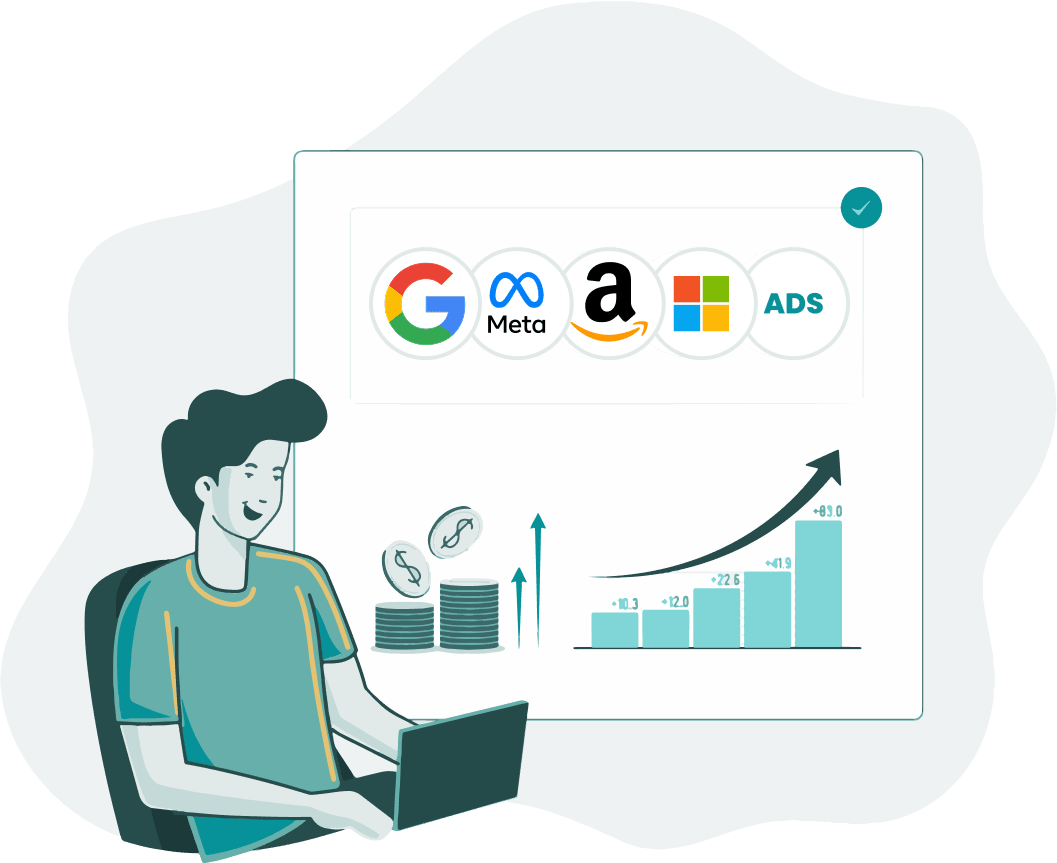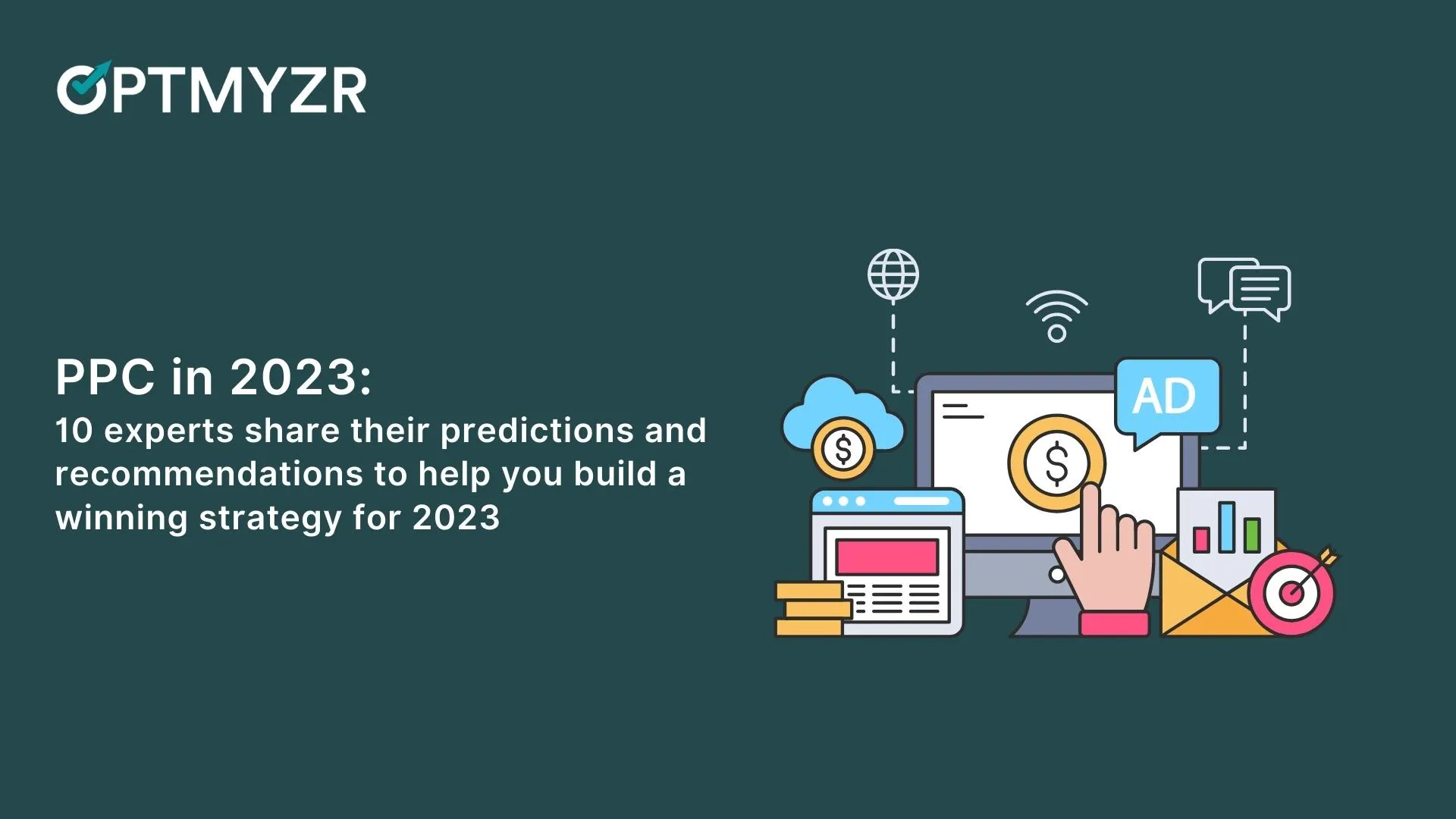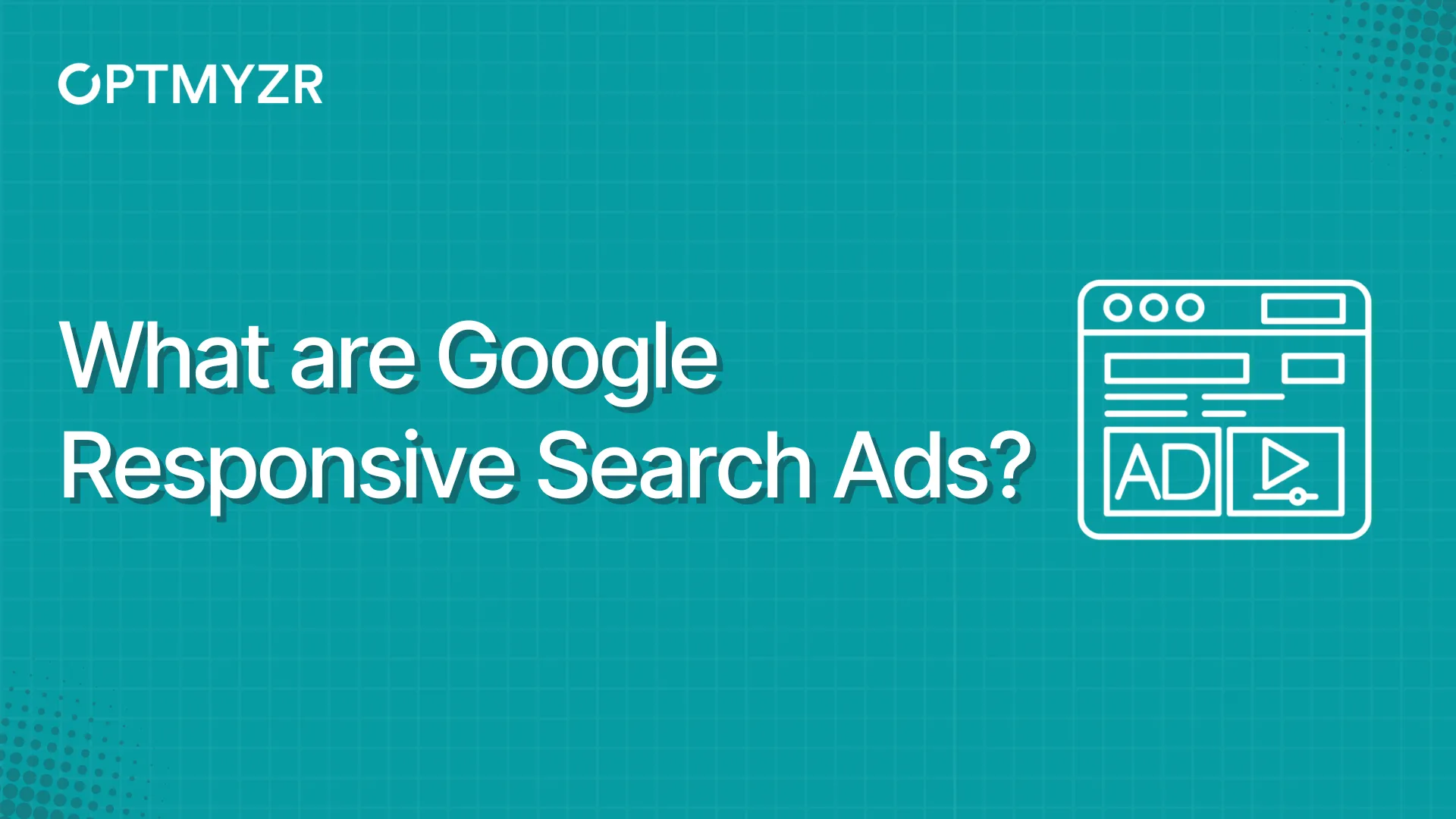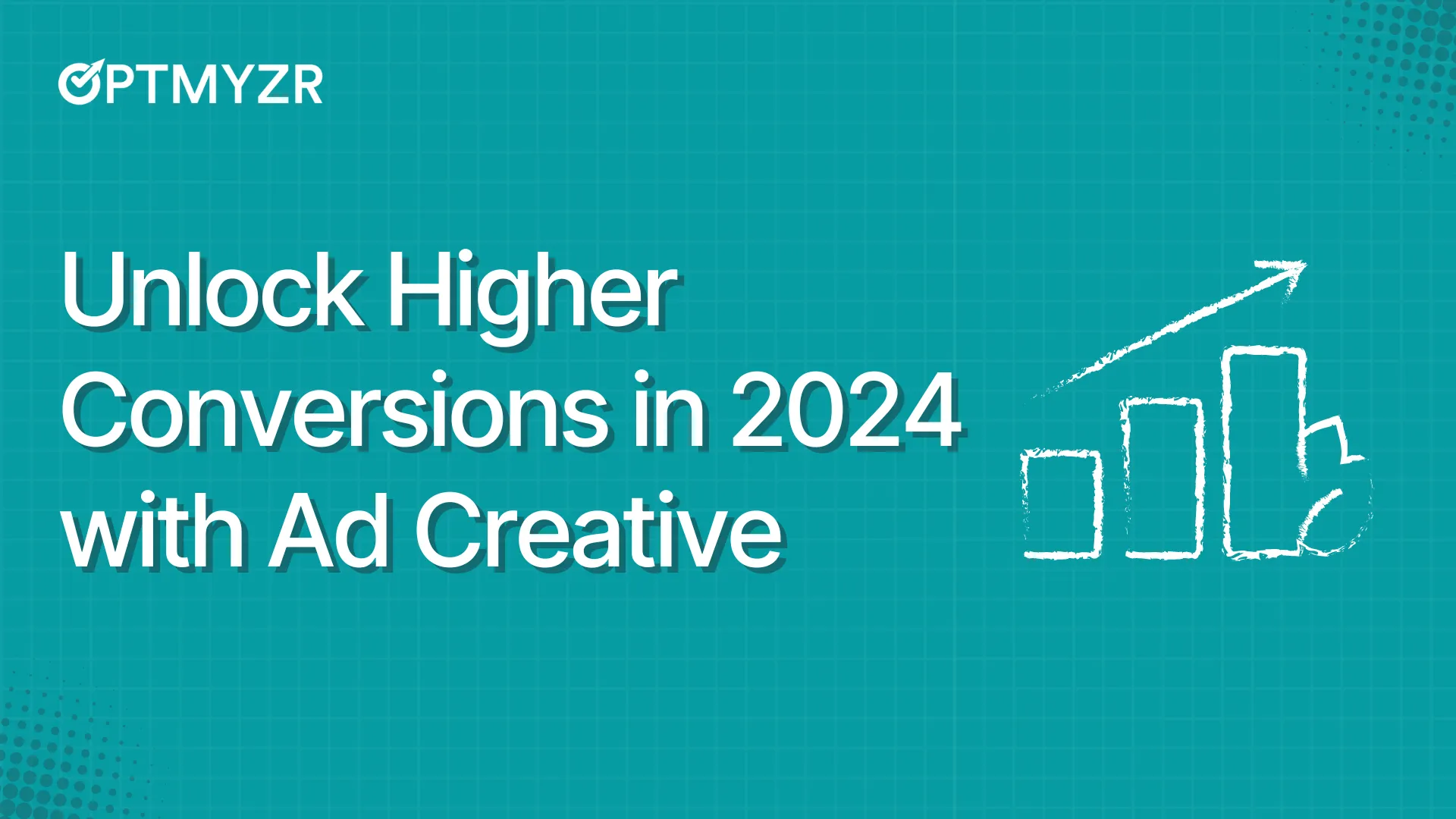Every day there’s a new innovation in AI and machine learning. Whether these innovations unlock more time in the day, process data more quickly, or do other functions the human mind can’t do alone, they all have a potential place in our marketing arsenal. However, it can be very easy to get overwhelmed by the sheer number of new tools coming onto the playing field.
AI is meant to help us get more done in our day. Some folks have taken to fully delegating to AI-driven advertising. This isn’t inherently bad, but it can mean that certain campaign management fundamentals can fall by the wayside.
Here are the core tasks and strategies that advertisers need to continue to own:
- Creative Message Mapping: picking the right audiences to go with the right creative (and if you can’t use audiences, crafting creative that can speak to all potential buyer personas).
- Operational Scale: knowing how many leads/sales a brand gets in a month and where that number can grow without any operational change.
- Core Campaign Strategy: understanding why you build accounts the way you do and having the whys behind the hows of each campaign choice.
1. Creative Message Mapping
Many of the audiences we would have historically used to message-map have either been depreciated or aren’t available due to industry sensitivity. For example, similar audiences used to be an option to target for search campaigns (allowing the advertiser to target folks predisposed to be ideal customers).
Now that similar audiences are baked into broad match and Performance Max campaigns, targeting strategies have shifted dramatically. Advertisers need to proactively exclude audiences (like they would negative keywords) to ensure their creative lands with the right prospects. Placement exclusions are useful as well (Optmyzr’s Smart Exclusion tool can help here).
Advertisers need to choose language and visual assets that will address common themes in buyer personas. This might mean forgoing specific demographic choices in favor of brand tone. For example, the Infiniti campaign, “Infinitely You” creates different stories of empowerment, and that sentiment comes through regardless of whether the individual story exactly matches.
Broad match and top-of-funnel campaigns should not be viewed as waste. They enable brands to get access to otherwise unavailable audiences as well as discover new ways to communicate with their market.
2. Operational Scale
Knowing whether you can reasonably fit more leads in your day, which parts of your business make sense to invest marketing dollars into, and other operational questions live entirely with human strategists.
While automated signals can be a reasonable source of advice, they should not have full reign over your account. This is because the ad algorithm won’t know what your customer success capacity is or whether you’re having phone issues. All it will be able to see is conversion volume and values against the budgets you’ve provided. This is why optimizing for ROAS (return on ad spend) can be dangerous - revenue doesn’t equal profit.
Humans need to own where to invest and where to pull back. While pacing tools and rules can help with day-to-day budgets and bidding, full delegation will likely mean waste.
3. Core Campaign Strategy
One of the reasons automation and AI are helpful assistants as opposed to replacements for digital marketers is the understanding of how different marketing channels best serve business goals. Marketers who only use one campaign to cover everything, or fully delegate all their marketing into Performance Max lose the ability to perfectly match objectives to channels.
It’s vital that campaigns are built for strategic objectives (like high-profit parts of the business) as opposed to PPC mechanics like match types.
Where We Can Share The Load
Now that we’ve covered what tasks need to remain with human minds, here’s where the experts get value out of automation in their day. You can take those lessons learned and apply them to your workflow. This is not intended to say that some automations/AI/ML are better or worse than others. If there’s a workflow you’ve found helpful, let us know!
Here are the main workflows covered:
- Using ChatGPT for local SEO and PPC
- Optimizing content output time
- Harnessing AI and automation in email outreach
- Proactively identifying hubs of profit and waste.
Big thank you to our experts who contributed!
Use ChatGPT For Local SEO and PPC
Google business profiles (formally known as Google My Business) are a critical part of local SEO and PPC. Having a well-optimized listing in the map pack can help you capture transactional organic traffic as well as set you up for success with local service ads (LSAs).
Corina Burri (an SEO consultant) recently shared her experience using ChatGPT to help with crafting the messaging for profiles and it’s clear that this is a huge time saver (especially for brands with many locations).
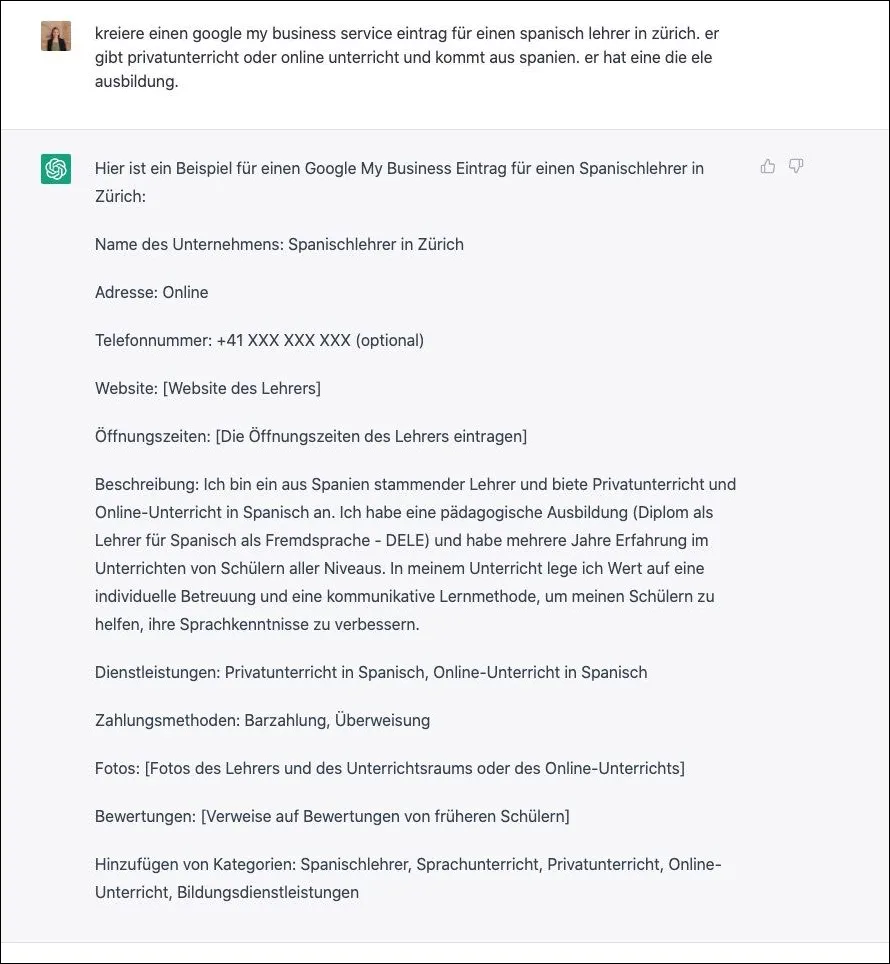
It’s important to note that humans still need to review and apply the content. However, having it organized definitely saves you time!
Optimize Content Output Time
The biggest wins for AI/ML/Automation are in content time savings. Yet for a long time, there was a lot of hesitation to adopt these tools. Whether it was due to mistrust of the quality, or fear of being penalized, many marketers held off on fully embracing the power of AI. Here’s a great perspective from Hemalatha Devadass (of infeedo.ai) on how she shifted from doubter to believer.
What AI/ML tools do you use in day-to-day marketing tasks?
I have not been a firm believer in using AI-based tools for marketing, at least for content. And this was because I come from an SEO background and I go by the ideologies of Google that any content must be produced having user intent as the core.
I have always believed AI has not evolved to address the intent behind keywords or even content pieces for that case. But, ChatGPT has completely bowled me over. What started as an experiment with the tool has got me spending close to 3 to 4 hours of my day looking for long tail keywords, keyword intent mapping, and even producing really good metadata for improving my CTR.
Do you find that you’re working less, more, or the same amount as before introducing these tools?
Since I joined a new team recently and the website is just starting with SEO, there was not much content available already to optimize. Eventually, a strategy had to be mapped out to produce mass content to expand and establish new silos. We had to churn out 50+ content pieces in a quarter and the content briefs that needed to be produced for this would’ve definitely taken a lot of time.
But with Chat GPT in place, I personally sat down to clear these 50 requests in a span of 1 week. This could’ve at least taken 3 to 4 weeks when done manually (and I’m not at all exaggerating when I say this because the process of creating a content brief involves looking at the top 10 SERP pages one-by-one and taking down the headings & subheadings and zeroing down on which will give us the best results)
What’s your favorite innovation from the past six months?
It definitely has to be this idea of producing an image or a video from just the input of a keyword or a phrase. I have had dependencies throughout my career for these two requirements. But now, with just a phrase, I am able to produce a decent image that can be used in blogs. Of course, it is not that intuitive till now. But, for a featured image that needs to go with a header of a blog, this perfectly works.
Any other thoughts on AI/ML in marketing?
I had always feared how AI-based content would replace the uniqueness of human-written content. I always feared the takeover of content writers’ roles by AI. But, with AI in place in its full form, I got the perspective of how AI is here to amplify the product/service we are offering and can never be a threat.
There is always a need for a product to handle enterprise HR, a workflow process, or even handle employee engagement metrics. And most importantly, there is always a requirement for the content writers to polish the content and get the perspective straight. AI is here to stay and it’s only going to explode in the coming days. Make the best use of AI to get the best possible way to market your product, learn and even start a business.
Harness AI and Automation In Email Outreach
Email and SMS marketing often get forgotten in the AI/ML conversation. Thankfully, Laura James of Flow-SEO.com has us covered:
“I work in SEO and I think we’re really at a golden age of the SEO strategist - we now have so many avenues of making menial and repetitive work simpler and quicker that we’re able to spend more time on thinking, analyzing, and planning. My favorite tools are the ones that help me do just that. SheetAI uses OpenAI in Google Sheets and is a dream for speeding up metawriting and outreach emails.”
“Lex is an AI-assisted writing tool that is wonderful for helping me create content outlines for clients and improves my own writing with suggestions, rewrites, and summaries. I also use GetRedirects, which uses AI to map redirects faster. You still need to manually check them, of course, but it exports the list with a handy ‘confidence’ percentage, so you can see which ones are more likely to be correct at a glance.”
- Laura James
I would say that once you get the hand of how these tools work and put processes in place, it definitely makes efficiencies and leaves you able to do the work that only humans can do - like strategy. I’m all for anything that makes my job easier!
Note how the human is still involved, we’re just delegating the more time-consuming parts to automation.
Proactively Identify hubs of profit and waste
“I use ChatGPT and Slides AI in my daily business. Chat GPT is perfect for SEO tasks like keyword research globally, topic clustering, creating schemas, and other code snippets. Slides AI is perfect if you have to create a lot of presentations.
These are really good supporting tools complementing your regular work.”
- Veronika Höller, Global Senior SEO Manager - CompuGroup Medical
Final Takeaways
Automation, AI, and machine learning are baked into all the work we do. Going to either the extreme of hiding from it or fully delegating all tasks will hurt campaign performance and cause skills to dull. Rather, marketers who take a middle-ground approach, blending automation into their workflow while retaining strategic, analytical, creative, and operational tasks will excel in this automated world.
Optmyzr is designed to empower brands to succeed in owning that middle road: human minds driving automation.
Manage and optimize your Performance Max campaigns, Responsive Search Ads, shopping campaigns, and so much more. You can also check out our optimization tools for Microsoft Ads, Facebook Ads, or Amazon Ads.





